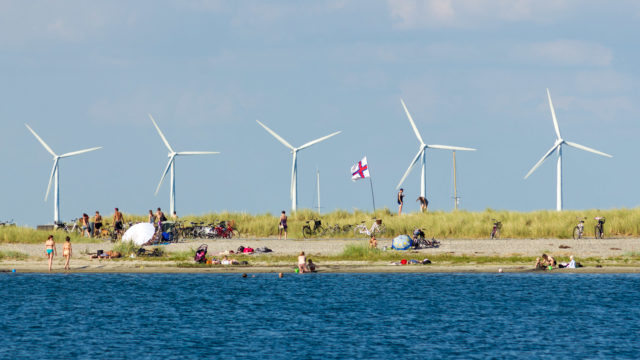Does Future Earth get the big picture?
Around 200 people gathered in the headquarters of the Royal Society in London recently to discuss Future Earth. The building is crammed full of scientific history and oozing with pictures of the all-time greats, never letting you forget the Royal Society has been at the cutting edge of discovery for more than 350 years. That means there is a whole series of hard acts to follow, and those of us with less than 100% self-confidence might just wonder if we can really be part of achieving the scientific equivalent of miracles all over again - at a time when the stakes are higher than they have ever been in the Society’s past.
Future Earth is a very large-scale initiative from the world’s scientists engaged in research into global environmental change, together with funders, governments, allies, supporters, and some stakeholders. Out go the old collection of acronyms – IGBP (International Geosphere-Biosphere Programme), IHDP (International Human Dimensions Programme), and others like them, now neatly consolidated into a single organisational chart with a set of far-reaching yet integrated objectives.
Are natural sciences enough?
We can only rejoice at the sight of scientists getting their act together on a global scale in order to address many of the world’s most important problems - but at the same time, it is also clear that such an ambitious project will have problems of its own to tackle. One is the problem of social science. Although the initiative for Future Earth came principally from natural scientists, they have recognised the importance of social factors in shaping human impacts on the environment and human responses to environmental difficulties. They are therefore open - keen in fact - to collaborate with social scientists.
But “social science” is a different type of undertaking from natural science. It is possible to argue that natural science is itself deeply dependent on economic and political context – for example, it has been claimed that Darwin’s picture of nature was shaped by metaphors and language derived from the competitive capitalist philosophy of his time, and that he then projected the conflicts of the Victorian economy on to the natural world. But that type of analysis is surely far more true and problematic when it comes to the social, economic, and political “sciences”, or the study of history and human geography. Whatever the political influences on natural science, there is at least a major difference of degree between the impact of the inclusion of values, interests, ideologies, etc in social science and in natural science.
Who then do natural scientists collaborate with? Maybe with those for whom drastic inequality is a moral scandal, or those for whom it is justified and/or unavoidable. Or, more likely and less obviously political, those whose version of “social science” looks most like natural science: plenty of numbers, generalised laws and abstractions rather than different specifics in different times and places.
When science meets economics
When it comes to economics, things become particularly difficult. So there was talk at the meeting about “natural capital” – except that “natural capital” didn’t have those quotation marks around it. It was treated as an unproblematic entity, whereas in fact it has numerous philosophical, methodological, and political difficulties about it, compounded if you think you can “value” it in terms of money and then compare it with other forms of capital. The talk of “natural capital” may well represent a strategic advance when we are dealing with people so blinkered as to never have taken the natural world into account in any way before, but if natural scientists start to think that the “value” of a “piece” of “natural capital” is a fact about it, like its mass or its distance from the equator, then the possible dialogue between natural and social scientists that we might have is not going to get very far.
And then there's the politics
Politics reared its frequently ugly head in another way too, which I found fascinating but worrying. With the failure of our species to come anywhere near restraining its rate of greenhouse gas emissions, it is arguable now that the most important topic for research by something like Future Earth is geo-engineering, because it is both potentially crucial and potentially disastrous, and there has so far been too little research to tell us which it is. I heard a scientist at the meeting put that view – and then I heard a funder reply that geo-engineering is “a political hot potato”, that research would alarm the public, and that if we prioritised it, it would cause governments to want to get rid of Future Earth before it had even got properly started.
I can appreciate the pragmatism of that argument, but nevertheless it implies that our species has got itself into an even bigger set of difficulties than we appeared to be in before, if not only are we failing to restrain our emissions but we are also politically incapable of carrying out properly organised, funded, and co-ordinated research into some of the dwindling set of options for coping that are still available to us.
An ivory tower?
Not wanting to be too depressing, I will mention just one more problem. This is the question of “stakeholders” – who are they? Funders naturally have to be included, and governments and large corporations with the power to implement some of the scientific conclusions have to be included too. But where does that leave the rest of us? Few civil society organisations were represented at the Royal Society. It is always the case that those with the least money, staff, specialist expertise, access to the media, friends in high places, etc, have much more difficulty in having their say than those who have plenty of all those things - and it is always the case that natural bias needs to be deliberately counteracted.
I think Future Earth is an excellent initiative, and I hope it is extremely successful. Dealing with problems such as these is one of the keys to Future Earth becoming the impressive force for good which it is clearly capable of being.
Victor Anderson, Global Sustainability Institute


